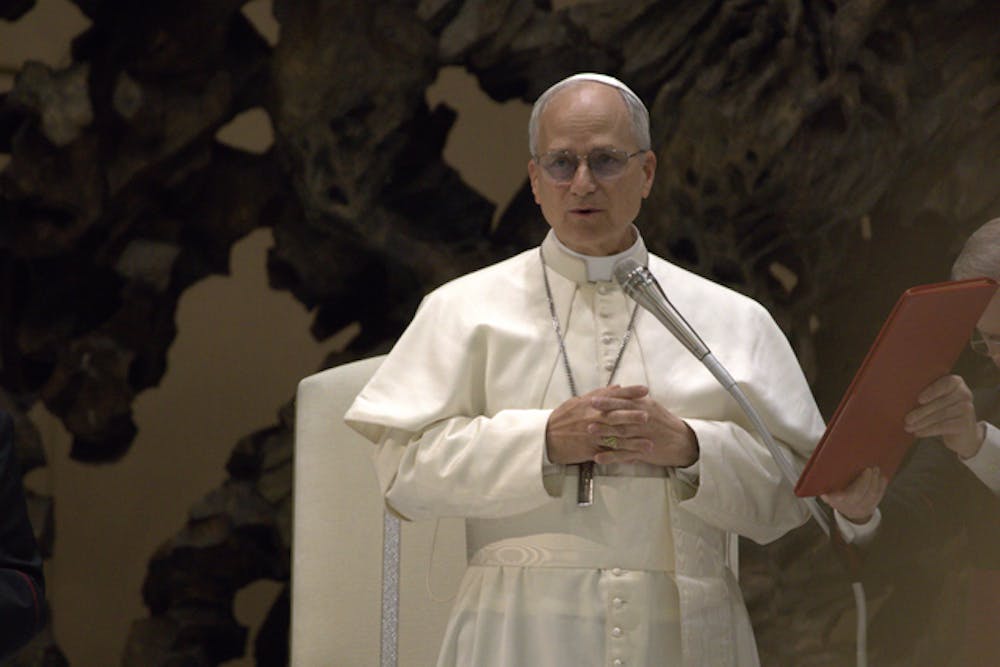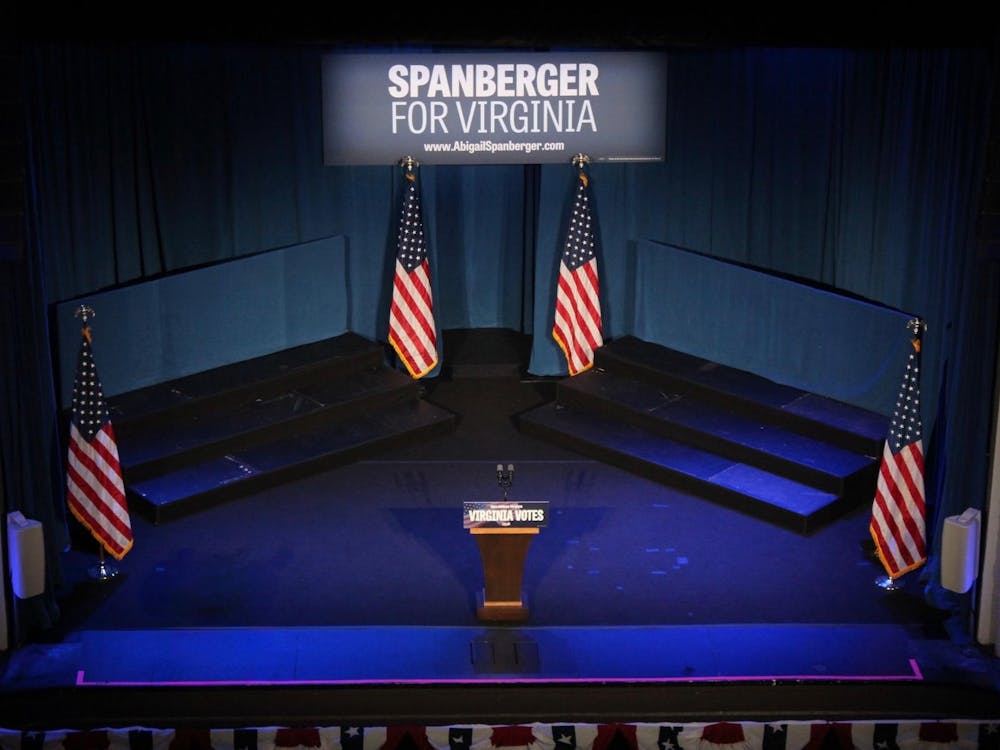The first pope from the United States, Cardinal Robert Francis Prevost was elected the 267th pope of the Roman Catholic Church during the papal conclave in the Vatican May 8, succeeding the late Pope Francis. He is 69 years-old and chose Leo XIV as his papal name. Students on Grounds expressed surprise about Leo’s election as well as an appreciation for his experience in the Church.
Leo grew up in the Chicago suburb of Dalton, Ill. and attended Villanova University, earning a bachelor’s degree in mathematics. He joined and later led the Order of Saint Augustine, which seeks connection to God through a life of charity, unity and truth. As pope, Leo is expected to continue the legacy of his predecessor, focusing on support for the poor and missionary work.
Jack Vista, chair of the Catholic Hoos Communications Committee and rising third-year College student, said that he had not expected the next pope to be American because it seemed that most cardinals were hesitant to the idea before the conclave. He noted how this election shows the remarkable significance of the American Catholic Church.
“I think for a long time, the pope and the Vatican just seemed so foreign,” Vista said. “And now you have a Chicago-born-and-raised guy who went to the 2005 World Series.”
Dalton Haydel, president of Catholic Hoos and rising third-year College student, echoed Vista’s sentiment, expressing deep surprise at the election of Pope Leo. Most Vatican observers also did not expect the election of an American pope.
“I wasn't expecting [the election of Pope Leo]. There's been a long stigma in the church against American popes, just because America is a worldly superpower, militarily, imperially,” Haydel said. “But I think that Pope Leo is the best option for an American pope given those circumstances, because he is a very globally aware American.”
Vista said that American Catholics are no longer excluded from Rome by having the U.S.’s first pope, but are now a complete and connected part of the broader Church. He expressed the importance of having a pope Americans can better understand and relate to.
He noted the value of having a pope who can speak English fluently, which comes in contrast to the Argentinian pope, who mainly spoke Spanish, though he could speak English.
“There was a ‘60 Minutes’ interview with Pope Francis and there were complications with translation … it’s hard to interpret some things,” Vista said. “But the fact that we’ll have a pope who can speak directly to Americans is really important.”
Haydel noted that Leo’s nearly 20 years of experience working as a missionary in Peru has given him a unique identity that encompasses countries other than his own, making him a distinctive choice for pope. After his work in Peru, he was appointed by Pope Francis as the Bishop of Chiclayo, a post he held for eight years.
Beyond Peru, Francis appointed Leo to lead the Dicastery for Bishops, a powerful Vatican office that oversees the selection of most new bishops, in 2023. He was also named a cardinal, a position that is charged with electing the next pope, by Francis the same year.
Haydel also said that Leo is what the Catholic Church needs right now and that he is excited to see the unity that Leo will bring by continuing to focus on the poor and returning to some of the Church’s traditional elements.
One tradition within the Church which Haydel noted is the significance of Leo wearing the red mozzetta and stole over his white cassock during his first speech to the world. While Francis notably refused to wear the red mozzetta and stole, Haydel said that Leo’s decision to wear these decorative and time-honored items is a return to the tradition and stability of popes John Paul II and Benedict XVI. He said this return to traditional dress is something the world needs right now during turbulent times.
“[The mozzetta] is supposed to symbolize the weight of his office, and the fact that he came out with that also shows his humility to the world,” Haydel said. “It might look like he's wearing very fancy clothes and living a luxurious life as pope already, but the truth of it is, is that he's recognizing … the burden that he has in bringing the Church together and leading us to Christ.”
Vista noted that the former Pope Leo XIII led the Catholic Church in a time of great social and economic change in the world, particularly the Industrial Revolution. He then described the conditions in which Leo XIV must lead the Church today, especially in regards to the rise of artificial intelligence.
“I think [Pope Leo XIV] echoes Pope Leo XIII in his work to deal with the industrial revolution and Catholic social teaching,” Vista said. “I was never expecting Leo, but I think it works really well with what [Pope Leo XIV] is up against for his papacy.”
Rising second-year College student Nolan Batton is not Catholic, but shared his thoughts on the impact Pope Leo could have on religion and politics around the world.
Batton, a Wisconsin native, hopes for Leo, a Midwesterner himself, to emulate the Midwest “nice” and kindness connected to the region. He also described the importance of someone who can bring peace and unity to the world right now, referring to the inaugural Mass which Leo spoke at Sunday.
“He will stand as more than just a leader, but also a symbol of peace,” Batton said. “I think he will speak out on some of the events happening around the world, which will hopefully open some eyes.”
The pope chooses his name as a signal of his priorities, typically selected from a predecessor.
At Leo’s first mass in St. Peter’s Square, his speech was delivered in Italian with readings in English, Spanish, Greek and Latin. He declared the current period “the hour for love,” a signal of his hopes for a world filled with division and conflict.







